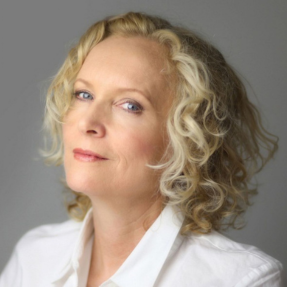Skyros Blog

Your Story, Burning Bright – Why Protecting Your Idea Might Be the Best Way to Begin
There’s a particular kind of sparkle that shows up when someone’s talking about a story they haven’t written yet.
Their eyes light up. Their voice speeds up. You can feel the heat of an idea beginning to burn.
And then, sometimes, the story never gets written.
If you’ve ever been there, you’re not alone. And you’re not doing it wrong. In this honest and gently motivating guest blog, Skyros writing facilitator Diane Connell shares one of the most important lessons for any writer starting out: how to keep the creative flame alive, and when to protect it from the wind.
Guest post by Diane Connell:
Your Story, Burning Bright
You’re starting out as a writer and you have a brilliant story idea. It’s good. You know it’s good. And you want to tell the world about it.
You’re excited. Of course you want to talk about your as yet unwritten story or book. This is your story and finally you are going to write it. Absolutely. It’s going to be great.
But then you don’t write it.
One of the most helpful tips I can give you is to keep your idea to yourself. Something happens when you talk out an idea, when you don’t actually put the story on the page. Your creative energy gets poured into conversation instead of into your creative project. Your enthusiasm dissipates. The gulf between the idea and the written word widens. Your dazzling idea stops shining so brightly. You start to lose confidence. You begin to fear the blank page. You make excuses. You don’t write or finish your story or book. You stop talking about it.
Now, I will contradict myself.
Of course you can talk about your idea but do it with a writing partner, a person with similar enthusiasm, imagination and skills. Find another writer who you can trust, who will give you honest and helpful editing advice. A sounding board and an ally.
Set up a weekly meeting with your fellow writer, either in person or via one of the many video chat apps. Send each other chunks of text before the meeting, a chapter or a story. Read and make comments on each other’s work prior to the meeting.
Yes, it is a weekly commitment but don’t we all work better to a deadline? And when you help someone else, when you work together for mutual benefit, something special happens. You deepen your understanding of the writing process. You both benefit from the advice you receive and give. It’s quite extraordinary, this experience.
The trick is to find the right person. Seek out someone you can trust. Constructive suggestions are gold. We all benefit from such guidance. But criticism based on taste is worthless and can be destructive. You want someone who encourages you but with a critical eye. This is most likely not a family member or best friend.
If you choose the right writing partner, a person who wants the best for you as you do for them, your writing will flourish. Trust me, you will get as much out of helping another writer as you do from your friend’s constructive suggestions and criticism.
Why We Loved This Advice
At Skyros, we hear it all the time “I’ve had this story in my head for years.”
And just as often: “I don’t know how to start.”
Diane’s advice offers two simple truths:
-
Don’t let the talking become the writing.
-
But don’t go it alone, either.
That balance, between holding something close and knowing when to open it up, is the delicate magic of any creative process. And it’s something we see guests rediscover in every course, especially on our writing retreats in Atsitsa Bay.
When you have someone who listens, reflects, and gently challenges you to keep going, something shifts. Doubt turns into direction. Isolation gives way to inspiration. As Diane says, “you will get as much out of helping another writer as you do from your friend’s constructive suggestions.”
Where the Page Meets the Pine Trees
On our fiction and memoir writing courses in Atsitsa Bay, you’ll find time, space, and supportive guidance without pressure. Whether you arrive with a half-formed idea or nothing but curiosity, you’ll leave with a notebook full of possibility.
Courses take place outdoors, under shady trees or overlooking the sea. You’ll meet like-minded people, try new creative practices, and find what it means to write honestly and bravely, whether or not you call yourself a “writer.”










Comments
There are no comments yet. Why not be the first?